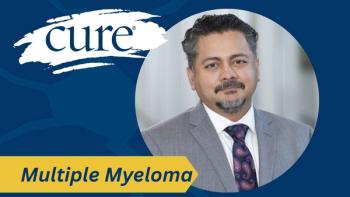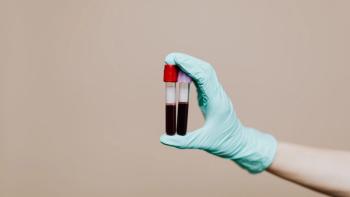
Hope for Relapsed/Refractory Multiple Myeloma

Transcript:
Kristie L. Kahl: What is the risk for myeloma becoming relapsed or refractory?
Dr. Nina Shah: Unfortunately, myeloma is still considered an incurable disease. I always call it a marathon disease because even though you may have five or six years in the first part of your treatment, inevitably all patients will relapse or progress. So, it's almost a 100% risk basically that something is going to happen in the time of myeloma to cause progression or what we call relapsed disease. Refractory really refers to when the disease doesn't respond anymore to treatment and that tends to happen in the later parts of the disease. But earlier on we're able to get a response. So there is basically a 100% chance that the patient will become relapsed and maybe more in the later parts of their disease would become refractory.
Kristie L. Kahl: Are there any other risk factors that are associated with an increased risk of this happening?
Dr. Nina Shah: Almost every patient does have relapse at some point, but the question is who will relapse sooner. Because of that, we know that there are patients that we consider high risk that might have a sooner time to relapse or progression. For example, patients with high-risk cytogenetics or FISH, which is a DNA study, those findings include things like deletion 17p or translocation 4 and 414 or translocation 14 and 16 and these are just chromosome numbers or parts of DNA, if you have any of those or if you've been told that you are revised international staging system score, for example,also known as RISS, is a high score at 3, then there's a greater chance that you'll have relapsed disease sooner than the average myeloma patient. So, that's one of the systems we use to figure out how we should time things and what kind of prognosis we should give patients when they are diagnosed.
Kristie L. Kahl: What are some of the challenges that are associated with trying to find a treatment for the relapsed and refractory setting?
Dr. Nina Shah: Relapsed/refractory myeloma is a huge challenge because although we have wonderfully successful drugs that we can use up front, many of these drugs are already used by the time the patient is relapsed and refractory or has had several progressions. So, one of the things that you'll often hear myeloma doctors say is that after you've had a relapse or a progression, they'll try to use a drug that you haven't been exposed to. So, the biggest challenge for us is finding more of those drugs.
And that's what drug development is all about. That's what clinical trials are all about. Sort of ironically and happily enough, the drugs that we now use in the frontline settings, such as Velcade (bortezomib), Revlimid (lenalidomide) and other drugs like Kyrpolis (carfilzomib) that we used earlier, those were originally studied in the relapsed and refractory setting. So, patients are actually benefiting from an upfront standpoint now that we've studied those in their relapse setting. So, finding new drugs is always a challenge.
I think the other challenge is the patient's challenge. It's really hard to find out you have a progression. It might just be something that we find on the blood. It's actually not even something symptomatic. And that's hard for a patient to say, “Okay, now I'm going to start this journey again, where I'm going to get a brand new drug with different side effects and a different schedule, And it might work and it might not.” I think that sort of mental stress is something that's really real and something that we try to address at these very important inflection points in our interactions with patients.
Then, tolerating the drug because these do have different side effects. The more you get on with the myeloma journey the drugs that we use for relapse and refractory myeloma further out have more side effects because, of course, these patients have been treated with multiple therapies. So, maybe the bone marrow isn't as strong so there's more anemia or more low platelet counts. Because of that, it can be a little bit tough for patients to tolerate these therapies as we get later and later. So,another very important part of the treatment for relapse and refractory myeloma is supportive care and trying to make sure patients can maintain a good quality of life.
Kristie L. Kahl: Is there a current standard of care for the relapsed/refractory setting?
Dr. Nina Shah: Standard of care for a relapse or refractory is based on FDA approvals and clinical trials that have been done. So what we used to say two years ago would be that if someone relapses after their first relapse then they would get maybe a daratumumab, also known as Darzalex containing regimen or a Kyprolis-containing regimen. Even in these past two years, Darzalex has been approved in the frontline setting. So, it's possible somebody may have received that in the frontline and if they don't use it later, there's always a debate do you use all these good drugs up front or do you wait for them when patients relapse? And we really don't know the answer to that because these studies haven't been done.
The good news is the more we have clinical trials the more data we have. The more experience we have, we get a better idea of what drugs we can use in the frontline, what drugs we can only use in the secondline and how patients respond with side effects and other things regarding tolerability.
Transcription edited for clarity.



